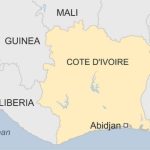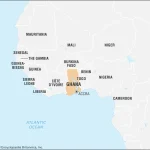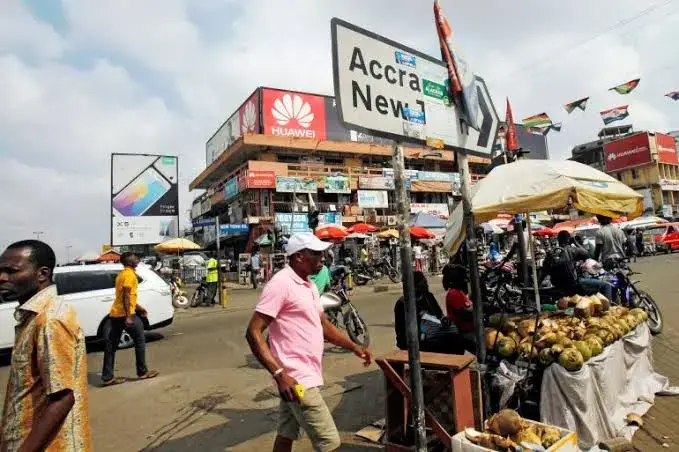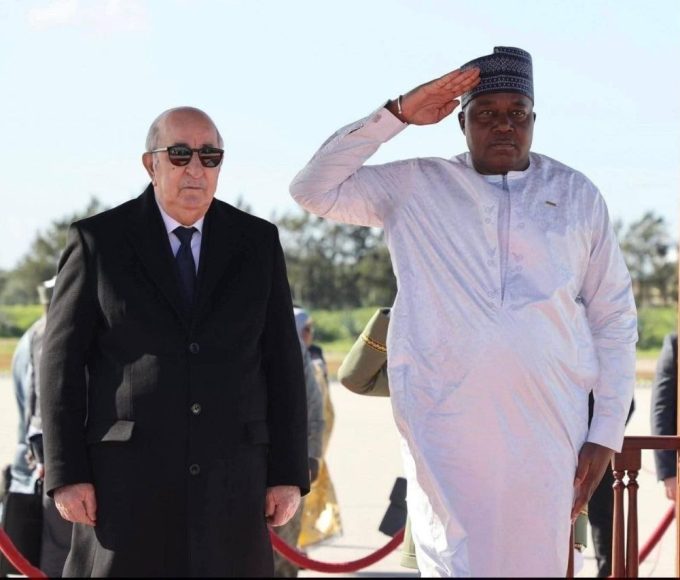
Ghana’s annual consumer inflation rate eased to 21.2 per cent in April 2025, down from 22.4 per cent in March, according to the latest figures released by the Ghana Statistical Service (GSS). This marks the fourth consecutive month of decline and the lowest inflation level since late 2023.
Government Statistician Alhassan Iddrisu said the continued decline was mainly due to moderating increases in both food and non-food prices.
“Food inflation remains the biggest price driver,” he stated during a press briefing on Wednesday. He added that although food price growth is slowing, it is still elevated, highlighting challenges in stabilising essential items’ prices.
In April, food and non-alcoholic beverages recorded an inflation rate of 25.0 per cent, while the non-food category posted a rate of 17.9 per cent. The monthly inflation rate stood at 0.8 per cent.
According to the report, there were notable regional differences. Inflation ranged from 18.3 per cent in the Volta Region to 37.1 per cent in the Upper West Region. Eight of Ghana’s 16 regions recorded inflation rates above the national average.
Despite recent progress, inflation remains well above the Bank of Ghana’s target range of 6 to 10 per cent. In March, the central bank, led by Governor Johnson Asiama, announced a surprise interest rate hike as part of efforts to tighten monetary policy and control inflation. The bank is expected to review the impact of this move during its next Monetary Policy Committee (MPC) meeting scheduled for May.
During his March budget presentation, Finance Minister Cassiel Ato Forson said the government was committed to reducing inflation through strong fiscal consolidation, including deep spending cuts. He projected inflation would drop to 11.9 per cent by the end of 2025.
Ghana’s economy has struggled with persistent inflation pressures in recent years, driven by global shocks, currency depreciation, and high import costs. Despite the encouraging slowdown in inflation, policymakers will need to restore economic stability and ease the cost-of-living pressures facing Ghanaians.
Mali’s Government Suspends All Political Parties Indefinitely Over Public Order Concerns
About The Author
Related Articles
Gabon Suspends Social Media “Until Further Notice” Amid Rising Unrest
Gabon’s media regulator has announced the suspension of social media platforms nationwide,...
ByWest Africa WeeklyFebruary 18, 2026Niger’s Tiani Visits Algeria in Bid to Strengthen Ties and Revive Key Projects
Abdourahamane Tiani, Niger’s head of state, is on an official visit to...
ByWest Africa WeeklyFebruary 18, 2026Niger’s Tiani Accuses France of Plotting Attack on Niamey Military Base
Niger’s head of state, General Abdourahamane Tiani, has renewed his accusations against...
ByWest Africa WeeklyFebruary 18, 2026Governor Lawal Says Zamfara Missed Out on Palliatives for Not Being APC
Dauda Lawal, the governor of Zamfara State, has alleged that his administration...
ByWest Africa WeeklyFebruary 18, 2026













Leave a comment